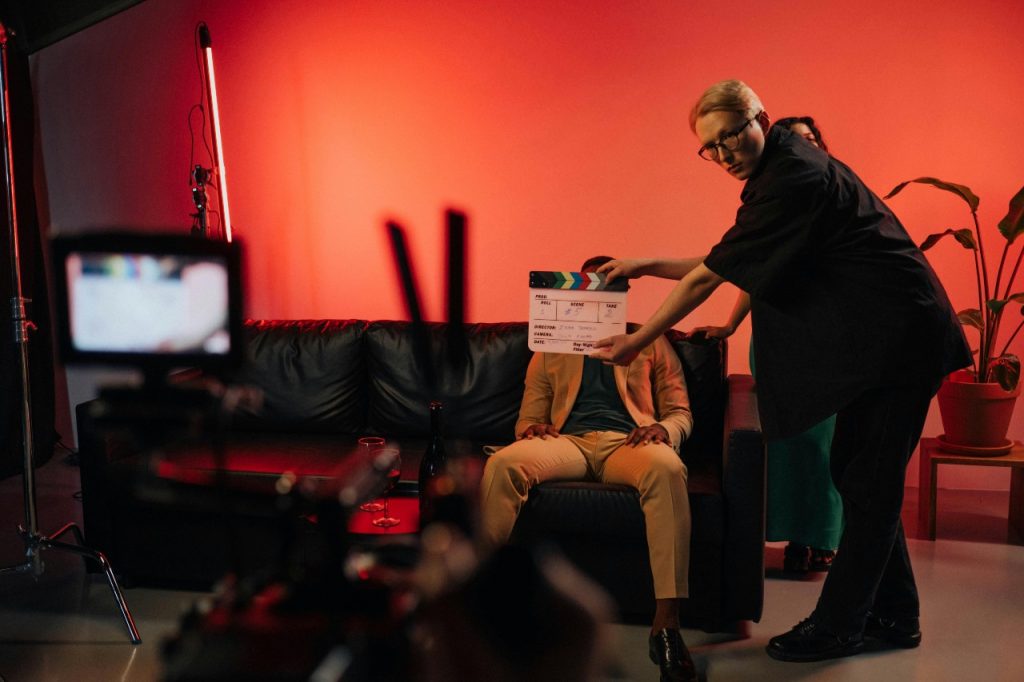Inside the Game: How TV Dramas Mirror the Psychology of Gambling

For some of us, the first time we saw gambling was in a TV show. You know, the casino lights, the intense card games, the fancy suits, and all the drama. It looked exciting, almost like a movie in fast-forward.
But when you look past all the flash, there’s actually something deeper going on. The same things that make gambling addictive are often what make TV dramas so hard to stop watching. The thrill of taking a chance, not knowing what’s going to happen next, and getting emotionally attached, those feelings are all part of how our brains work.
The Thrill of Risk vs. Reward
Every gripping TV drama has that moment: will the character take the plunge? Will they get away with the con? Will the bet pay off? That feeling of anticipation? It’s the same kind of rush gamblers get when they’re about to take a risky move. Psychologists call it the “risk versus reward” principle.
Whether you’re watching a tense scene in a show or placing a bet, our brains love the thrill of not knowing what’s going to happen. Even if the odds are low, just the chance that something big might happen is enough to keep us hooked.
We’re more likely to engage, invest time, or put money on the line. It’s why cliffhangers work on TV. And it’s why a high-stakes spin on a slot machine keeps players coming back.
Online casinos understand this balance exceptionally well, especially those offshore. Since they have fewer restrictions compared to UK-licensed casinos, these platforms offer bigger rewards, special VIP deals, and even free games to keep you more engaged. And if you want to play high-stakes games, there are a variety of options available as well. This is the right balance of risk and reward. (Source: https://www.cardplayer.com/uk/online-casinos/non-uk-casinos).
Intermittent Reinforcement: The Power of “Sometimes”
One of the biggest things that keeps people coming back, whether it’s gambling or watching shows, is a phenomenon called Intermittent Reinforcement. That just means getting rewards at random. You don’t win all the time, but you win just enough to keep things exciting. It’s like playing a slot machine, you might lose a few rounds, then win a little. It’s unpredictable, and that is where the thrill lies.
This is similar to mystery TV shows. Exciting stories can actually make your heart race and boost adrenaline. That’s why we end up binge-watching, staying up too late, and tapping on the next episode without thinking twice. It’s the same mechanism at play, sometimes you get the payoff by guessing whodunit, sometimes you don’t. It’s that ‘maybe’ that keeps you coming back.
This kind of random reward system isn’t just a fluke, it’s actually a proven way to keep people coming back. In Gambling, throwing in surprise bonuses, random prizes, or changing win patterns helps to keep things fresh, exciting, and unpredictable.
The Near-Miss Effect: So Close, Yet So Far
Ever seen a scene where a character almost pulls something off? Almost wins, almost escapes, but just misses it? That feeling of being so close isn’t just for drama. It’s actually a psychological phenomenon called the Near-Miss Effect, and it’s super effective at keeping us locked in.
Gambling machines are often designed with this in mind. A player might land eight of his predictions in one bet slip correctly, only for one and the last to ruin the whole game. This is what a lot of people call ‘cut one’. Instead of disappointment, it motivates many players to keep going. Our brains interpret a near win as a sign we’re getting closer even if the outcome is entirely random. A recent study showed that the value of near-misses are tied to the value of the reward expected. So when people expect to win big, a near-miss feels closer to a win. Conversely, when they expect a small reward, a near-miss is simply a small loss.
TV dramas employ the same technique. Think of how many times a love confession is interrupted, or a villain is nearly exposed but not quite. It’s frustrating but also compelling. We stay tuned because we’re emotionally invested and believe the “win” is coming soon.
The Sunk Cost Fallacy: I’ve Come This Far Already
Ever kept watching a series you weren’t even enjoying, just because you’d already made it to season three? That’s the sunk cost fallacy doing its thing. It’s when we feel like we have to stick with something just because we’ve already spent time or energy on it, even if we’re not really into it anymore.
Gambling has this effect too. A player who’s spent months mastering a game is more likely to keep playing and become a seasoned player than a first-timer learning the basics. The logic says: “I’ve come this far; I can’t stop now.”
Fictional character Saul, from the hit show ">Better Call Saul, explains it as a gambler spending a little extra on a game because they have spent some money already on it. Sometimes this pays off. Other times, it doesn’t. Ultimately, it goes back to risk versus reward.
The Shared Language of Emotion
Because gambling and TV dramas actually speak the same emotional language. They both hook us with suspense, the unknown, and a bit of hope. Whether they mean to or not, they tap into the same psychological buttons to keep us watching, playing, or both.
From an entertainment perspective, it’s fascinating. From a behavioural one, it’s worth noticing.
Take, for instance, the way casino-themed films consistently capture audiences with their blend of glitz, risk, and tension. Casino-themed shows and movies have stayed popular because they hit all the emotional highs and lows we love in a good story.
But it’s not just gambling content that does this. TV dramas in general are built to tug at our emotions, especially when they mix tension with real human moments. Gambling isn’t just about money, and TV isn’t just about story. They both tap into the way our minds are wired, to chase entertainment and rewards, to get pulled in by ‘almosts’, and to stick with things we’ve already started.

